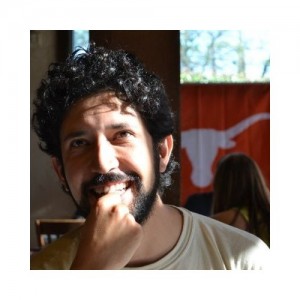by Eric Enrique Borja
On Friday the 13th at 1pm, the UT-Austin Ethnography Lab will host a Brown Bag series with Jorge Derpic. Jorge will discuss his paper entitled, “Twenty one days of lynching and three jute bags. Collective violence and state presence in rural Bolivia,” which he will present at the 2015 American Sociological Association annual conference.
Below is an excerpt from his paper:
During the first week of July 2009, Pedro Condori, 35, asked his nephew, Roberto Mamani, 24, to join him on a trip to Tawa – a rural community ten hours away by bus from the government seat, La Paz. There was a one-night job opportunity at the local school and the possibility to earn some money. At first, Roberto was unsure about the offer – not for nothing his uncle had a dubious reputation among the family – but Pedro finally convinced him, offering 200 Bolivianos ($30 U.S. dollars) in reward for his company.
Early in the afternoon of July 9, the couple departed from Oruro, a small city located five hours away from Tawa. They arrived at 9 p.m., and went straight to the local school named after Pope Benedict. There, they run into Antonio Rodríguez, the janitor, who happened to be wandering around the school’s courtyard. They waved at each other, and seeing there were still people awake, the couple left town. They found a place where to lie down for a couple of hours in the surrounding mountains.
At 1 a.m. Pedro woke Roberto up. They walked back to the school. This time there was no one in the streets. While Roberto waited at the school’s entrance, Pedro ran inside the classrooms. He found nothing. On his second attempt, he walked to the computer lab, and with the help of a kickstand, he broke in. He came back with a heavy jute bag full of stuff and gave it to Roberto. Then he went back inside, half an hour passed when he finally returned with another bag the same size.
The couple had no car of their own, so they put the bags on their backs and walked out of town. Four hours later they arrived at a house Pedro had in Chua, another rural community. There was a hole already dug. They proceeded to bury two computers, three printers, a DVD player, one TV and some accessories. Then they walked to the main road located two hours away. A bus passing by took them back to Oruro.
Twenty-one days later, residents of Lawa brutally murdered Roberto’s younger brother, Ernesto Mamani, who at the time was 20. How did an individual, who had not directly participated in the robbery of the school’s equipment, become a victim of the rage of an entire community? This can only be explained by looking at the development of the events, the actions undertaken by local leaders to solve the crime, and the relative absence of state institutions in the area.

